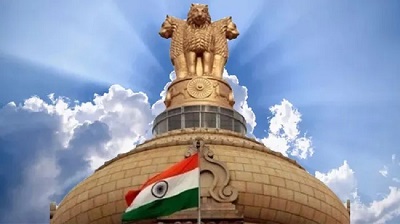Context-
The concept of lateral entry into civil services has sparked significant debate in India, particularly after the Union Public Service Commission (UPSC) issued and then withdrew an advertisement for 45 lateral entry positions, including 10 Joint Secretary and 35 Director and Deputy Secretary posts. The move faced backlash from Opposition parties, who accused the government of bypassing reservation policies and undermining job opportunities for Other Backward Classes (OBCs), Scheduled Castes (SCs), and Scheduled Tribes (STs). This raises the question: Should lateral entry in civil services be encouraged?
The Need for Lateral Entry
- Need for Specialists and Fresh Talent: Advocates of lateral entry argue that civil services require specific expertise that the traditional Indian Administrative Service (IAS) officers may not possess. These specialised roles, such as those in disaster management, semiconductors, FinTech, and emerging technologies, demand technical knowledge that generalist officers typically lack. Lateral entrants, who are often experts from their respective fields, are seen as valuable additions for policymaking, particularly in areas requiring in-depth technical understanding.
- Addressing Personnel Shortages: The Baswan Committee (2016) noted a reluctance by large states to sponsor officers for central deputation, leading to staffing shortages at the central level. Lateral entry can help fill these gaps.
- Improving Governance Efficiency: Past examples, such as Montek Singh Ahluwalia and Parmeshwaran Iyer, demonstrate that private sector recruits have effectively enhanced governance efficiency, suggesting a need for similar efforts at mid-level positions.
- Bridging Public-Private Gap: Post-1991 economic reforms have increased the role of the private sector in public services.
Challenges with Lateral Entry
- Lack of Familiarity with Bureaucratic Processes: However, critics argue that lateral entry into administrative posts is problematic. Traditional civil service positions, such as Deputy Secretary, Director, and Joint Secretary, are administrative and secretarial in nature, and expertise alone may not suffice for these roles. The rigorous civil services exam, which had around 13 lakh applicants last year with only 1,016 selected, serves as a filter for candidates who must then gain years of experience before reaching senior administrative positions. Lateral entrants, by contrast, bypass this process, often being selected through a résumé review and a brief interview.
- Historical Lessons from Pakistan : The historical example of Pakistan's civil service reforms highlights potential pitfalls of lateral entry. In 1972, the Zulfikar Ali Bhutto administration introduced lateral entry to bring specialists into government positions, but this soon degenerated into political patronage, with party loyalists filling key positions. Later, under General Zia Haq, military personnel were inducted into civil service roles, which further eroded the integrity of the system. Today, Pakistan's civil service faces challenges stemming from these practices, demonstrating how lateral entry can devolve into a spoils system where appointments are influenced by political loyalties, cronyism, nepotism, and corruption.
- Safeguards Against Cronyism : To mitigate the risks associated with lateral entry, some suggest instituting rigorous selection processes, such as written tests specific to each domain, combined with comprehensive interviews. Merely relying on a résumé and interview can be insufficient and susceptible to manipulation. The case of Puja Khedkar, who scored high in interviews but was later found to have faked her identity, illustrates the limitations of interview-based selections.
- The Reservation Controversy : A major concern with lateral entry is the perception that it bypasses established reservation policies for SCs, STs, OBCs, and Economically Weaker Sections (EWS). While the government argued that lateral entry positions are additional and do not take away existing jobs, critics highlight that these posts are often carved out of existing ones, thus affecting promotion opportunities for career civil servants.
Suitable Ranks for Lateral Entry
Maintenance of balance-
- The government needs to maintain a fine balance between the career civil servants and the lateral entrants. The number of lateral entrants should be kept optimal and minimal.
Steps for assimilation with bureaucratic structure-
- Opinions differ on the appropriate levels for lateral entry within civil services. Some argue that lateral entry should occur only at the Secretary level or above, where candidates like notable experts or public figures bring undeniable expertise and stature. At the highest levels, their experience and knowledge can significantly contribute to policymaking without displacing career bureaucrats in the mid-level ranks.
- Others suggest that lateral entry could be suitable at the Joint Secretary level, where experienced professionals can contribute to policymaking while influencing the direction of their departments. These positions, which have authority and responsibility, can benefit from the fresh perspectives and efficient management styles that lateral entrants often bring from the private sector or academia.
Restriction to few technical sectors-
- The appointment should be restricted to sectors of finance, economy and infrastructure, which are technical in nature. It should not be extended to Home, Defence, Personnel etc.
Conclusion
Lateral entry into civil services, while aimed at infusing expertise and fresh perspectives into government roles, carries significant risks if not carefully managed. The potential for political patronage, bypassing of reservation policies, and undermining of established career pathways for existing civil servants are critical issues that need addressing. A balanced approach, ensuring rigorous and transparent selection processes, adherence to reservation norms, and careful consideration of the ranks at which lateral entry is permitted, could help mitigate these risks. The success of lateral entry ultimately depends on maintaining the integrity of the civil service while effectively integrating specialized expertise where it is most needed.
|
Probable questions for UPSC Mains Exam-
|
Source- The Hindu









